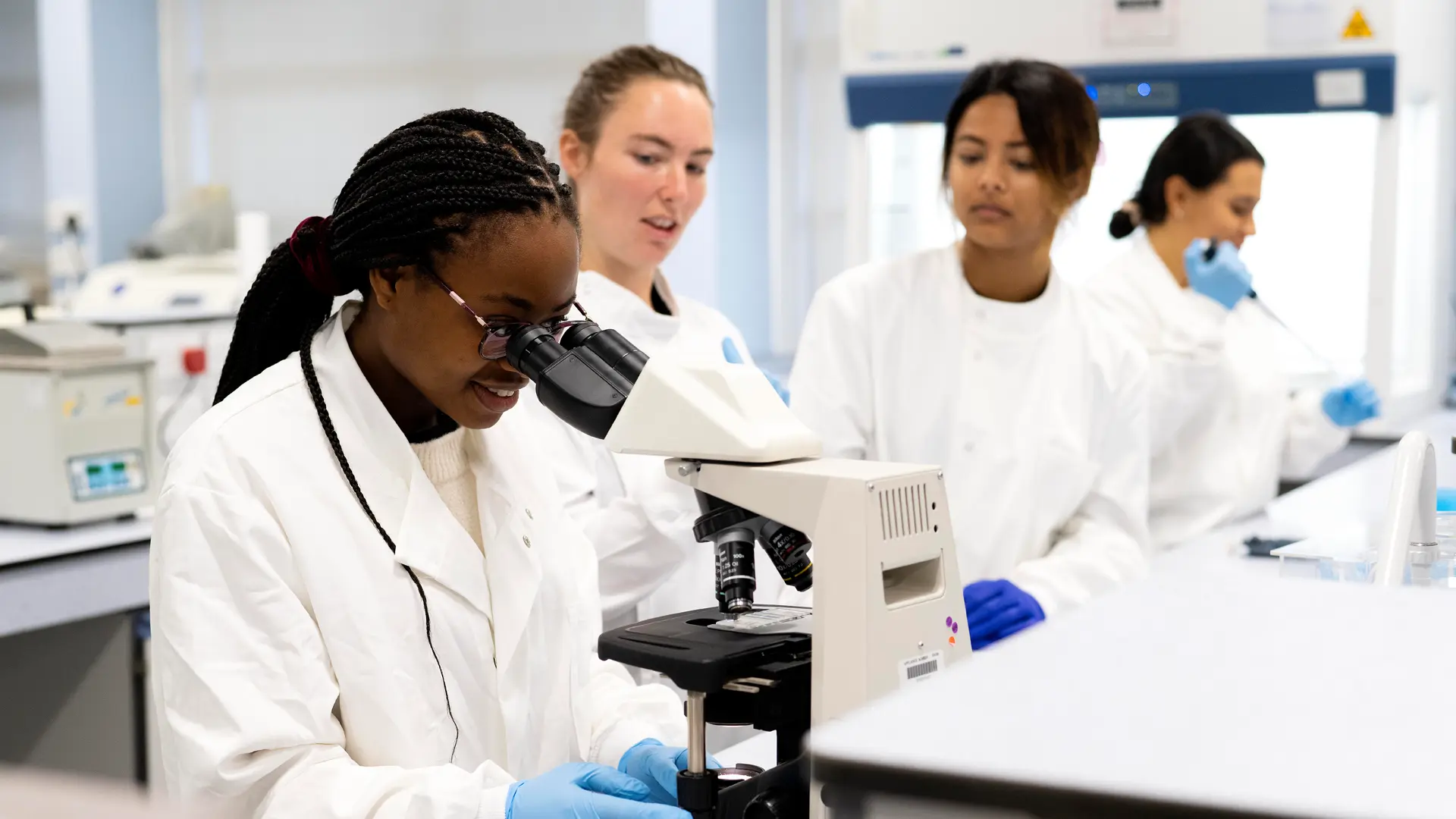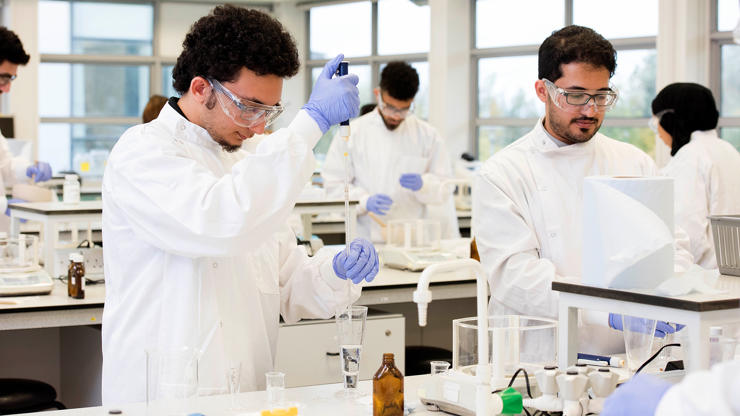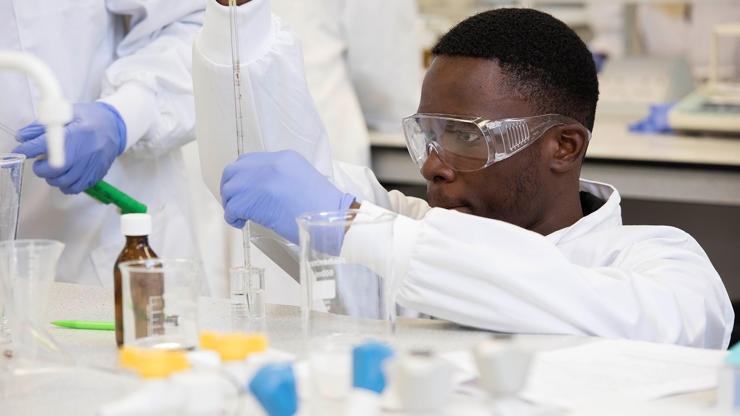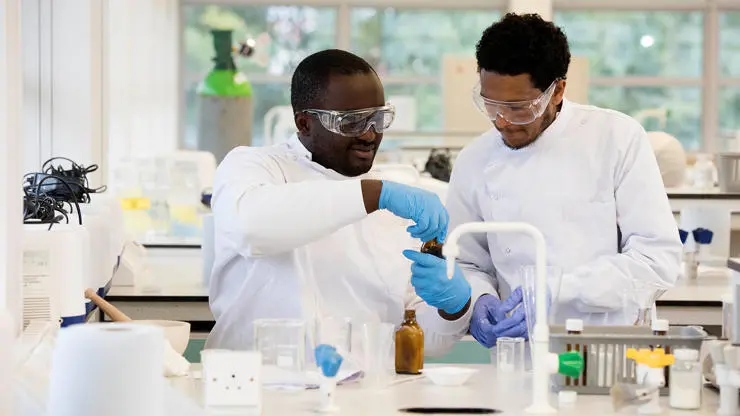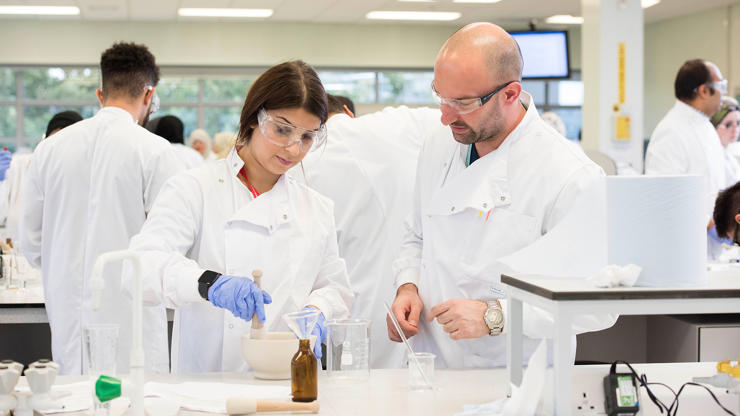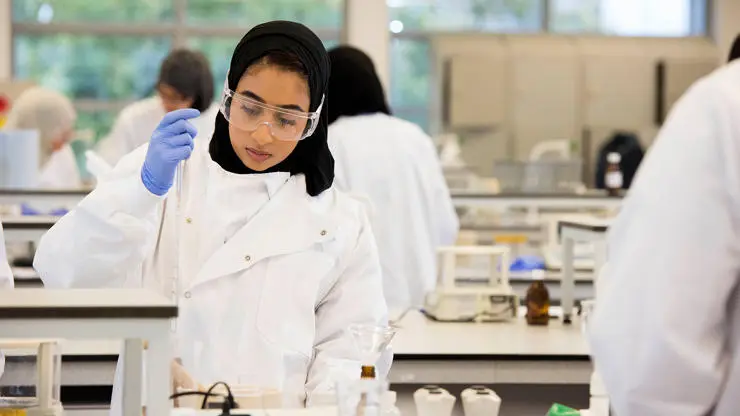Accredited by the Institute of Biomedical Science (IBMS), which is essential for employment in hospital pathology laboratories, our Biomedical Science degree involves the study of health and disease and how the human body functions during normal and diseased states.
Why study with us
- 2ndin the North West for student satisfactionComplete University Guide (Biomedical Science)
2025
- This course has been accredited by the Institute of Biomedical Sciences (IBMS) for over 20 years
- Our Biomedical Science course ranked 1st in the North West for graduate prospects. (Complete University Guide 2022)
- Taught by internationally-recognised research-active scientists and biomedical scientists.
What you'll do
- You’ll develop a range of laboratory based and theoretical skills associated with sound scientific practice.
- We have a strong focus on practical experience ensuring that you’ll graduate with real-world skills for a variety of careers both inside and outside of the laboratory.
- You'll have the opportunity to take the Healthcare Science route after Year 1, which includes placements in NHS pathology laboratories.
Modules
Every effort has been made to ensure the accuracy of our published course information. However, our programmes are subject to ongoing review and development. Changing circumstances may cause alteration to, or the cancellation of, courses. Changes may be necessary to comply with the requirements of accrediting bodies or revisions to subject benchmarks statements. As well as to keep courses updated and contemporary, or as a result of student feedback. We reserve the right to make variations if we consider such action to be necessary or in the best interests of students.
Accreditations
Future careers
Biomedical Science graduates can work in diagnostic and pathology laboratories in hospitals and other medical institutions or within biomedical related industries. Others opt to pursue careers in research through postgraduate study.
Entry requirements
We will consider your educational achievements, predicted grades, work experience and personal statement. If you don't meet the grades for your chosen course, we will consider you for other programmes.
We know that many factors can influence the grades you achieve in school or college. If your life experience has affected your academic studies, we can take this into account. Use the UCAS Points Calculator below to check whether you are eligible.
Unsure if you meet our entry requirements? Contact our friendly Course Enquiries team to talk through your options.
- UCAS: 104-120 points at A2 including Chemistry or Biology at C. General Studies, Critical Thinking and Citizenship & community Studies not accepted
- BTEC Extended Diploma: DMM - DDM in Applied Science. Please see UCAS for specific module requirements
- BTEC Diploma: D*D* in Applied Science. Please see UCAS for specific module requirements
- Pass Access Course: 104-120 UCAS points including 15 level 3 credits in Biology or Chemistry at Distinction
- International Baccalaureate Diploma: Pass with 104 - 120 UCAS points from Higher Level subjects including Higher Level Biology or Chemistry at grade 5
- T Level Science or T Level Healthcare Science with an overall grade M
- IELTS: 6.0 with no component lower than 5.5
- GCSEs: 5 at grade C/4 including Maths and English or equivalent
Not got the grades?
Our courses with a foundation year could be exactly what you're looking for. They provide an alternative route to study for this degree.
Fees and funding
Scholarships and bursaries
We have a wide range of bursaries, scholarships and funds available to help support you whilst studying with us.
Select your country to see eligibility information and how to apply by selecting more info on the cards below.
Care Leaver Bursary
Our Care Leaver Bursary is for students who need extra support because they have been in care or are estranged from their parents.
Find out more about Care Leaver BursaryEstranged student support
Estranged Student Support Bursary is for students who need extra support because they are estranged from their parents.
Find out more about Estranged student supportDependants Bursary
Students with financially dependent children may be eligible for our Dependants Bursary as part of our financial support package.
Find out more about Dependants BursaryFinancial support package
If you are from a low income household our Financial Bursary may be able to help.
Find out more about Financial support package
This course is delivered by the School of Pharmacy and Biomedical Sciences
For information on possible changes to course information, see our essential and important course information
You can find regulations and policies relating to student life at the University of Central Lancashire on our student contract page

